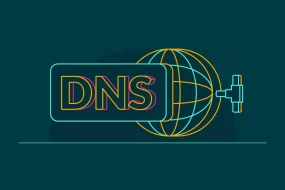
Email archiving is the process of systematically capturing, storing, and organizing emails to ensure their long-term preservation. It involves creating a centralized repository where emails can be securely stored, easily accessed, and searched when needed. Email archiving serves multiple purposes, ranging from legal compliance and regulatory requirements to knowledge management and data protection.
The Benefits of Email Archiving
Implementing an email archiving solution offers a myriad of benefits for individuals and organizations alike. Let’s delve into some of the key advantages:
1. Legal Compliance and Regulatory Requirements
With the ever-increasing number of regulations governing data retention and privacy, organizations must ensure compliance to avoid legal ramifications. Email archiving facilitates adherence to regulatory standards by preserving emails in a tamper-proof manner, ensuring data integrity, and simplifying the e-discovery process during legal proceedings.
2. Litigation Support and E-Discovery
In legal disputes, email communication often becomes crucial evidence. Email archiving provides a secure and easily searchable repository of emails, enabling organizations to swiftly retrieve relevant information for litigation purposes. This helps reduce legal costs and enhances the efficiency of the discovery process.
3. Data Protection and Disaster Recovery
Emails are valuable business assets that need to be protected from accidental deletion, hardware failures, or natural disasters. By archiving emails, organizations safeguard their critical communications, ensuring data resiliency and enabling swift recovery in the event of a disaster or system failure.
4. Storage Optimization and Performance
Email archiving relieves the burden on email servers by offloading older and less frequently accessed emails to a separate storage system. This optimization improves email server performance, enhances overall productivity, and reduces the risk of server crashes or slowdowns.
5. Knowledge Management and Collaboration
Emails often contain valuable insights, intellectual property, and historical context that can be leveraged for knowledge management purposes. Email archiving allows organizations to retain this information, making it easily accessible for collaboration, decision-making, and knowledge sharing within teams.
Frequently Asked Questions (FAQs)
Q1: How does email archiving differ from email backup?
A1: While email backup focuses on creating a copy of emails for recovery purposes, email archiving focuses on systematically organizing, indexing, and storing emails for long-term preservation and compliance purposes. Email archiving solutions provide advanced search capabilities and retention policies, ensuring secure and accessible storage.
Q2: Does email archiving impact email performance?
A2: No, email archiving solutions are designed to optimize email performance by offloading older emails to a separate storage system. This reduces the strain on email servers, resulting in improved performance and enhanced productivity.
Q3: Is email archiving suitable for small businesses?
A3: Absolutely! Email archiving is beneficial for businesses of all sizes. Many solutions offer scalability and customization options to cater to the unique needs and budgets of small businesses. It helps ensure regulatory compliance, data protection, and efficient email management for small enterprises.
Q4: Are cloud-based email archiving solutions secure?
A4: Yes, cloud-based email archiving solutions employ advanced security measures, such as encryption, access controls, and data redundancy, to ensure the confidentiality, integrity, and availability of archived emails. Leading providers adhere to industry best practices and compliance standards to provide a secure environment for email storage.
Q5: Can archived emails be easily retrieved?
A5: Yes, email archiving solutions offer powerful search capabilities that allow users to retrieve specific emails based on various criteria, such as sender, recipient, subject, or keywords. Advanced indexing and metadata extraction techniques enable quick and accurate retrieval of archived emails.
Top Selling Category: Cloud-Based Email Archiving Solutions
When it comes to email archiving solutions, cloud-based offerings have gained significant popularity due to their scalability, accessibility, and cost-effectiveness. Let’s explore the top-selling cloud-based email archiving solutions:
- Mimecast: Mimecast is a leading provider of cloud-based email security and archiving solutions. With its robust archiving platform, Mimecast offers secure and compliant storage of emails, advanced search capabilities, and seamless integration with popular email platforms.
- Proofpoint: Proofpoint provides comprehensive email security and archiving solutions that help organizations protect their communications and meet regulatory requirements. Its cloud-based archiving solution offers granular retention policies, advanced e-discovery capabilities, and automated compliance workflows.
- Barracuda: Barracuda’s cloud archiving solution ensures the long-term preservation and accessibility of emails. With features like intelligent storage management, tamper-proof retention, and fast search functionality, Barracuda simplifies email archiving and facilitates regulatory compliance.
Top Selling Products: Features to Consider
When selecting an email archiving solution, it is important to evaluate the features and capabilities that best align with your organization’s requirements. Here are some top-selling products to consider:
- Enterprise Vault: Enterprise Vault by Veritas provides robust email archiving capabilities, allowing organizations to securely store and manage their email communications. It offers advanced search and retrieval options, flexible retention policies, and seamless integration with popular email platforms.
- MailStore: MailStore is a popular email archiving solution known for its simplicity and affordability. It provides secure, tamper-proof storage, powerful search functionality, and flexible archiving options for both on-premises and cloud-based deployments.
- GFI Archiver: GFI Archiver is a comprehensive email archiving solution that helps organizations streamline their email management and compliance efforts. It offers features like advanced search, legal hold capabilities, and seamless integration with popular email platforms.
Conclusion
Email archiving is an essential practice in today’s digital landscape, offering numerous benefits such as legal compliance, data protection, and knowledge management. By implementing a reliable email archiving solution, you can ensure the long-term preservation and accessibility of your digital communications. Cloud-based offerings, such as Mimecast, Proofpoint, and Barracuda, have emerged as popular choices due to their scalability and cost-effectiveness. Consider products like Enterprise Vault, MailStore, and GFI Archiver to find a solution that aligns with your organization’s specific needs. Embrace the power of email archiving and take control of your digital communications today.






